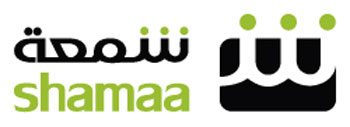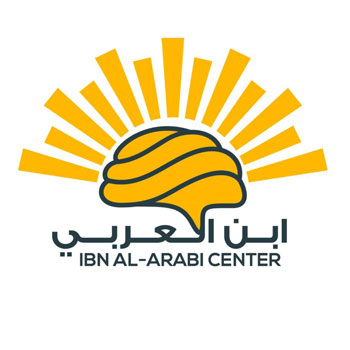Aspects of sustainable development in Moroccan companies, the Case of the cherifien group of phosphates referred to as OCP
DOI:
https://doi.org/10.56989/benkj.v2i4.427Keywords:
corporate social responsibility, corporate social responsibility ( RSE), development, sustainable development, social action, strategy, powerAbstract
The Third International Congress in Johannesburg (2002) marked the history of development because, for the first time, firms and non-governmental organizations were present and faced with their responsibilities for sustainable development. The starting point of this article will be the following questions: 1. How did the Moroccan company react to the concept of sustainable development and how did it use it in its strategies? 2. Has the concept of sustainable development been transformed into a social action carried out by the company when it interacts with its social and natural environment? 3. Has the Moroccan company’s relationship with its environment changed after adopting CSR in its strategies? The results of the study lead us to conclude that all the OCP propaganda about RSE is just a kind of sustainable advertising whose first goal is to serve the economic leadership strategy of the OCP.
Metrics
References
الجوهري محمد محمود (2010)، علم اجتماع التنمية، الطبعة الأولى، دار المسيرة، عمان.
الدكتور العيسوي إبراهيم (2012)، نموذج التنمية المستقلة، الطبعة الأولى، مركز دراسات الوحدة العربية، بيروت.
رشوان حسين عبد الحميد أحمد (2004)، علم اجتماع التنظيم، مؤسسة شباب الجامعة، الإسكندرية.
صن أمارتيا، التنمية حرية، ترجمة: شوقي جلال (2014)، عالم المعرفة، عدد 303.
فولف جانج ساكس، ترجمة: محمود أحمد (2008)، قاموس التنمية- دليل إلى المعرفة باعتبارها قوة، القاهرة، المركز القومي للترجمة.
المرواني عبد الله بن علي، (2005)، التخطيط التنموي، الرياض، مركز البحوث.
المراجع بالفرنسية:
Livres :
Auriac, J-M. et autres, (1995), Economie d’entreprise, Paris, éditions, Casteilla.
Beitone, A.et Hemdane, E. (2005), La définition de l’entreprise dans les manuels de sciences économiques et sociales en classe de seconde, éditions, Skhole, hors-série.
Bernoux, PH. (1999), La sociologie des entreprises, 2°èd., Paris, éditions, du Seuil.
Bonnet, J. et Broggio, C. (avec part de Nicolas Millet), (2009), Entreprises et territoires, éditions,Marketing SA, (coll : Ellipses) .
Brunel, S. (2010) Le développement durable, 4°éd., éditions, PUF, (Que sais-je ?).
Chandler.A, (1972), Stratégie et structure, Paris, éditions, D’organisation.
Collomb, B. et Rouvillois, S. (2011), L’entreprise humainement responsable, Paris, éditions, Desclée de Brouwer.
Copans, J. (2010), sociologie du développement, 2°éd., éditions, Armand colin.
Croset, P. (2012), la transformation de l’Office Chérifien des Phosphates, Paris, Editions DUNOD.
Crozier, M. et Friedberg, E. (1977), L’acteur et le système, éditions, du seuil.
Friedberg, E. (1993), Le pouvoir et la règle, éditions, Seuil.
Ghiglione, R. et Matalon, B. (1978), Les enquêtes sociologiques-théories et pratiques, Paris, éditions, Armand Collin, (coll: U).
L’effort social de l’O.C. P en faveur de ses ouvriers, (1952), imprimerie Maroc-Matin, Rabat.
Lacour. C, (1985)," Espace de développement : les enjeux théoriques nouveaux face aux contradictions des sociétés contemporaines", in Actes du colloque" Espace et développement", Marrakech, Doc. Stéréotype.
March, J. (1991), Décisions et organisations, Paris, éditions, D’organisation.
Matteaccioli, A. et Aydalot, PH , (2004) : Pionnier de l’économie territoriale, éditions, L’Harmattan.
Sainsaulieu. R, Sociologie de l’organisation et de l’entreprise, (1987), Paris, Presses de la fondation nationale des sciences politiques et Dalloz.
Segrestin,D.(1996), Sociologie de l’entreprise, 2°éd, Paris, éditions, Armand Colin.
Thuderoz, C. (2010), Sociologie des entreprises, 3°éd, Paris, éditions, La Découverte,(coll: Repères).
Revues et articles :
Defever-Kapferer, P. et Gastan-Breton, T. (2012), OCP : En marche pour l’avenir, Gibert-Clarey.
Economie et Entreprises, (Aout/Sept 2011), 100 ans de capitalisme au Maroc.
Downloads
Published
How to Cite
Issue
Section
License

This work is licensed under a Creative Commons Attribution-NonCommercial 4.0 International License.































 ElDjawda Soft
ElDjawda Soft